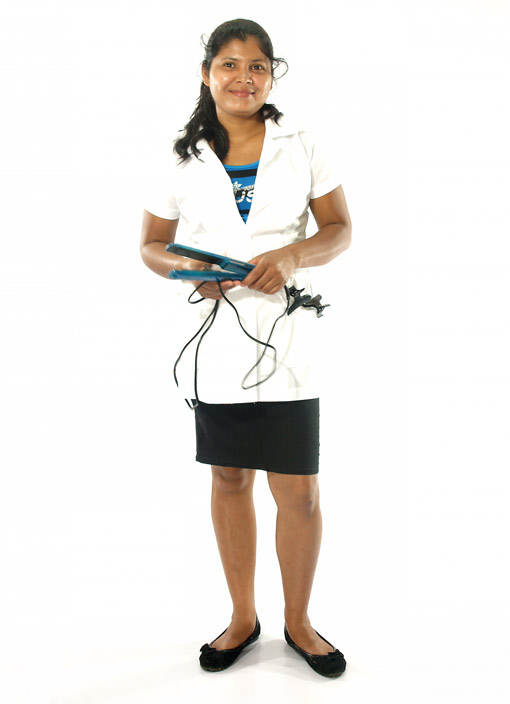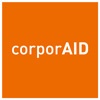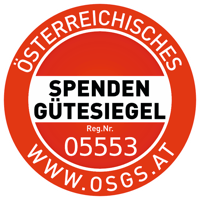ICEP brings people to business and business to the people.
ICEP gives women and men in developing countries new incomes opportunities and perspectives for a dignified life in rural areas.
ICEP helps youths and adults in developing countries to improve their chances of employment and better and regular income.
ICEP supports entrepreneurs in developing countries to persevere on the market and to expand their enterprises.

Better farmers
ICEP seeks to develop efficient agricultural structures that help small farmers to obtain higher added value with their farms.
Sustainably increase productivity and improve market access
With modern agricultural methods, both in cultivation and husbandry, small farmers are improving the quality and quantity of their agricultural production, contributing to the preservation of local ecosystems and are better prepared for natural disasters. Basic entrepreneurial knowledge allows small farmers and agricultural cooperatives to use their resources efficiently, develop marketing strategies and sell their products better.
Perspectives for a life in rural areas
ICEP also seeks to create alternative income generating opportunities outside agriculture in pre- and post agrarian industries, in services and in crafts. The work of ICEP offers people in rural areas the opportunity to develop economically and to recognize prospects for a dignified life in the countryside.
Sustainably against natural catastrophes
„I have benefited a lot from training for reforestation. Now I know how I can prevent landslides on my field and my crop yields are also higher.“
Higher environmental awareness through training
„Regular training is essential for us and our employees. In this way, also our children grow up in a sustainable environment. I am proud of that!“
Sustainable changes of life through education
„My education has changed my life sustainably – I can now even finance the schooling of my brothers so they may have a better future!“
How we achieve Impact:
In rural development, ICEP is currently working in Guatemala, Nicaragua, Mexico, Kenya and Brazil. On the other hand, ICEP implements projects with international foundations and private donors. On the other hand, we support and assist companies in the integration of farmers into their value chain – currently with an Austrian food company in Mexico and Fiji.
Training program in Kenya
Certification of farms, Mexico
Harvest yields in Guatemala
Our impact in numbers
Support for farmer families with or project partner Cenade in Nicaragua 2010-2012
trained farmer families
Cost of training per farmer
established farmer cooperatives
%
Ø income increase per farmer by end of project

Better employees
Orientating training along market demand
This is mainly about strengthening the capacities of vocational training centres, orienting the training they provide on market demand and improving the cooperation with companies and the public sector. The integration of international companies into local vocational education and training systems is a particularly effective lever for ICEP to achieve more and better employment in a region.
Training for men and women in the informal sector
A second objective of the work of ICEP is to provide affordable qualification services for men and women who need to secure their livelihoods in the informal sector, which is usually dominant in developing countries.
Dual training as a benefit
„The dual vocational training program has made me a competent toolmaker and greatly increased my chances for the future!“
Focus on the career
„Before I can start my own family, my first priority is to learn a real job so I can stand on my own two feet! The training counts a lot for me!“
The basis for my own business
„Through the support and exchange with other entrepreneurs, I get a lot of ideas that I can implement in my own company!”
How we achieve Impact:
ICEP is implementing vocational training projects around the world. The current ICEP program with the Austrian Development Agency is aimed at improving vocational training opportunities in Kenya and Uganda. In Mexico and Turkey, ICEP currently supports two Austrian companies in setting up dual training programs at their production sites.
Tourism training in Guatemala
Dual education program in Mexico
Training workshops in San Salvador
Our impact in numbers
Vocational training for women and youths with project partner Imani in Kenya (2011-2014)
Women and young people who have been trained
of those received a post-employment contract
Small businesses were founded
average investment per training

Better entrepreneurs
Business training and access to finance
ICEP supports people in developing countries with entrepreneurial training, strategic consulting and access to finance to recognize and exploit market and business opportunities and to successfully run their own businesses.
Strengthening competitiveness
In addition to assisting start-ups in consolidating their businesses, ICEP seeks to strengthen the competitiveness of established small businesses. In order to improve the supply of goods and services, to deepen local production structures and to create more employment, the promotion of high-growth small and medium-sized enterprises is of central importance.
Fit for new challenges
„Because of the training, I can better deal with the challenges that come to me through my company. I am very glad to have support!“
Provide better medical care
„I am confident after the course. My next goal is to open a health post in Kikuyu Town to provide medical care to people in this region!“
Dream of own business was fulfilled
„After successfully building my business, I would like to give young people a chance to gain experience in my business.“
How we achieve Impact:
ICEP projects are carried out in Kenya, Cameroon, Guatemala, El Salvador and Nicaragua. The “WorldWideWoman” program seeks to support women entrepreneurs. With ISBI in Kenya, ICEP is currently pursuing a market-based financing approach for small businesses that are already in the start-up phase.
Expansion of business centres in Cameroon
Entrepreneurship in Kyrgyzstan
Women's empowerment in Kenya
Our impact in numbers
Company-oriented training of women in rural areas in Kenya with project partner Kianda 2013-2016
Direct beneficiaries
%
could at least double their annual income
new jobs have been created
Investment per trained micro-entrepreneur

More business
Businesses: Engines for development
With the corporAID platform, we seek to identify synergies between development cooperation and the private sector, to establish a common understanding of business and development in Austria and to strengthen programs of economic development cooperation. On the other hand, ICEP highlights the economic and social opportunities of globalization, brings emerging markets and, in particular, Africa as a market into the public consciousness more strongly and works to ensure that the Austrian private sector plays a stronger role in developing countries.
Enhancing role and interests of the business sector
Ultimately, ICEP advocates a holistic foreign economic and development strategy that clearly defines legitimate interests and thereby allows Austria, with its many first-rate companies, to participate in and sustainably contribute to global development.
corporAID is pushing the business sector
“With the corporAID platform and its instruments such as the magazine, ICEP makes an important contribution to the understanding of business and development in Austria”
Promoting sustainable economic development
“With corporAID, ICEP significantly contributes to sustainable, economic development visible and gives provides inputs on how this challenge can be addressed”
corporAID illustrates the potential of emerging markets
“corporAID draws attention to growth markets of the future and shows how win-win situations for companies and people in emerging markets can be realized.”
How we achieve Impact:
It is difficult to raise awareness on a topic. However, it cannot be ignored that, because of the corporAID platform, something is happening.
corporAID wins top manager for the topic.
BusinessGuide on developing countries
ICEP gets involved in consultations.
Our impact in numbers
Promotion of an institutional economic development dialogue in Austria 2012-2015
Involved ministries and social partners
involved companies with sales exceeding 50 million
discussions and working groups
Programs that have been co-initiated

More responsibility
Positive framework for global CSR
With corporAID, ICEP has fixated business and development as a logical alliance for global responsibility in Austria. ICEP seeks to ensure that sustainable management becomes mainstream also for Austrian companies active in emerging and developing countries, and is committed to creating a positive framework for global CSR activities.
We support and accompany companies
In the end, we help companies translate global CSR from theory into their own business practice, and accompany companies in the implementation of projects with added value in emerging and developing countries – for the benefit of the company and people in emerging and developing countries.
Guidance and advice in the area of global CSR
„With corporAID, ICEP has accompanied the development of Corporate Social Responsibility in Austria in a committed and competent way.“
Valuable impulses in times of globalization
„We share the concerns of ICEP because, in times of globalization, it is becoming increasingly important to tackle global problems together.”
Partnerships between business and civil society
“For the last 10 years corporAID has been the voice bringing together business, development and global responsibility in Austria.”
How we achieve impact:
Putting issues into practice – that’s what ICEP intends to achieve with the corporAID platform. In terms of consulting, ICEP currently supports eight companies in their efforts to generate more in global business.
Development know-how for employees in companies
ICEP supports the training of professionals in Mexico
CEP accompanies the implementation of standards
Our impact in numbers
Business partnerships with RHI and Mondi in Saltillo and Monterrey in Mexico 2013 to 2015





